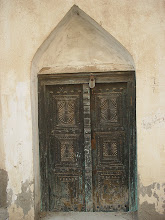Disclaimer: This entire entry is based on personal opinion and interpretation rather than indisputable facts, and any quoted facts may well be interpreted differently.
Perhaps one of the most profound cultural differences I have experienced over the past years as an expatriate centres around the matter of free will. Although individuals ultimately make up their minds about whether they believe their actions are predetermined or borne of free will (the philosophical debate of determinism/indeterminism), I am convinced that cultural conditioning plays a considerable part. (Whether we actually do have a choice in our opinion is, of course, open to infinite dabate!)
Although it was the “American Dream” of Life, Liberty and the Pursuit of Happiness that turned free will into a national mantra, even this New World-dictum had its roots in the philosophies that came to full fruition in the Europe of the 1800s. The concept is a hallmark of a broad (though not all-pervasive) stream of Western thought, and is reflected in statements such as Henley’s “I am the master of my fate, I am the captain of my soul” and the disputed “Each man is the architect of his own fortune”.
This is not to say that the entire “West” embraces the idea of free choice. The Henley hyperlink above, for instance, leads to a page showing a religious determinist reply to the poet. Even the popular novelist Paolo Coelho, loved by many for his book The Alchemist, implies that although humans make choices, these are woven into destiny- even the so-called mistakes. Generally, though, there is a strong focus on personal responsibility- thus, indeterminism- in cultural products of the West.
Tomorrow it will be eight years to the day that I left for the ‘exotic” East, and I have repeatedly been struck by the leaning in the other direction- determinism- in my host countries. Once again, this is not absolute but rather a general inclination that manifests in the way major life choices are made by (or imposed upon?) individuals: studies, life partners, careers, domestic situation and so forth are frequently chosen by elders, or even the state.
But it is in actually doing the work that one has chosen (or not) that the difference becomes fascinating. Theoretically I am inclined object to determinism because it would seem to kill motivation: if I had no choice in my job and my professional success depended on fickle fate, I personally would make no special effort. But since I have both the conditioning and the will to believe that my actions, words and thoughts are the threads that weave my destiny, I am motivated to do my best- at least under the circumstances. What has surprised me is how a determinist worldview can also push people to do their best for very different reasons, one of which is the rather cumbersome concept of duty. To be perfectly frank, the idea of duty puts my system on instant hibernate. Yet when I have seen truly exemplary initiative and dedication in the ever-mysterious East, the explanation has consistently been: “It is my duty.”
Then again… is that a choice, too?
Subscribe to:
Post Comments (Atom)


No comments:
Post a Comment